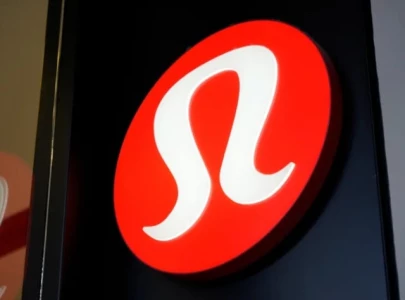
Weaned on the writings of CA Lejeune, a former film critic of The Observer, I have always regarded classics to be films like Bicycle Thieves, and L’avventura, Triumph of the Will and Roshomon. In fact, during my student days, I would never miss a movie which was directed by Federico Fellini, Michelangelo Antonioni, Vittorio de Sica, Roberto Rosselini, Luis Bunuel, Akira Kurasawa, Ingmar Bergman, Andrej Wajda, Satyajit Ray, FW Murnau, Ernst Lubitsch, John Ford and that granddaddy of the silver screen — Sergey Eisenstein.
Now, if you are a cinema buff and have been paying close attention, you might have noticed that I appear to have left out the French connection. This is because the French deserve exclusive treatment and a couple of paragraphs to themselves. Judged by any reasonable standard, France has produced a disproportionately large number of outstanding films. They have also, in my considered opinion, spawned the finest and most sophisticated film directors. Top of the list is Jean Renoir who threw off masterpiece after masterpiece with extraordinary fertility — classics like La Grand Illusion and La Regle du Jeu. Marcel Carne would probably be a close second with his extraordinary production of Les Enfants du Paradis, made in Paris during the German occupation; and Le Jour se Leve. And what about Jean Vigo with his La Atalante and Zero de Conduite , Jean Cocteau’s Orphee, Abel Gance’s J’Accuse and Robert Bresson’s masterpiece Les Dames du Bois de Boulogne?
In the field of comedy, there will never be another Rene Clair or another Jacques Tati, who took the critics by storm with his Jour de Fete and followed it with his universally acclaimed Les Vacances de M Hulot. I have yet to see a more poignant and touching account of life on the waterfront than Marcel Pagnol’s Marseilles trilogy. Or a more talented artist than Albert Lamorisse, who had a rare gift for blending documentary with fantasy. His Crin Blanc, shot in the marshes of the Camargue in southern France, was the finest short film I have ever seen. And when he followed it with The Red Balloon he made history.
One reason why the French films of the past are so outstanding is that the country’s intellectuals were quick to recognise the artistic potential of cinema. And though French studios didn’t have the huge budgets and industrial efficiency of Hollywood, they had a different kind of patronage, the benefaction that comes from not having to worry about shareholders breathing down producers’ necks. Small budgets mean greater freedom to exploit talent and greater scope to experiment. It is only on French or Italian soil that actresses like Arletty, Cecile Aubrey and Simone Signoret could blossom and flourish. Anywhere else they would have been completely lost.
Published in The Express Tribune, May 20th, 2012.
COMMENTS (6)
Comments are moderated and generally will be posted if they are on-topic and not abusive.
For more information, please see our Comments FAQ

1732437695-0/drake-and-charles-(1)1732437695-0-165x106.webp)


1732434981-0/BeFunky-collage-(10)1732434981-0-165x106.webp)







@anwer mooraj: Mr. Mooraj, I agree with your explanation that the directors in my comment were from a different period and need not therefore be clubbed with those in your article (although Bunuel's most famous French works are from that same period). My remarks on Hitchcock were related to the New Wave directors like Truffaut and Chabrol who were great admirers of Hitchcock (Truffaut has even published an interview with Hitchcock and Chabrol's first film was directly inspired by Hitchcock's Shadow of Doubt). Clouzot, on the other hand, was more an admirer of German directors like Fritz Lang; in fact, Les Diaboliques is said to have inspired Psycho - so the influence appears to be the other way around. Will look forward to another article from you on this subject, and thank you for your reply.
Thanks for the cultural education. Liked your opening little anecdote.
@BlackJack: Thank you Blackjack for your comments.It's nice to know there are still some classic cinema buffs around. The omission was deliberate. In fact there are some more French directors that you have left out. However, this article was never intended to be a compendium of French films. Had it been so I would most certainly have included the directors you had highlighted. As you have probably noticed the films I had mentioned took the viewer up to 1960. Perhaps I will do another article some time on the new wave..I agree with your comment about Vittorio de Sica. But Hitchcock ? Did he influence Clousot in Diabolique? I doubt it. Anwer Mooraj
@plarkin
I read your comments here. You, my friend, are voice crying in the wilderness. Be strong and never give up the fight.
A refreshing change from the usual articles on the issues that bedevil Pakistan. While La Regle du Jeu and La Grande Ilusion cannot be ignored, you seem to have missed out most of the prominent directors of the Nouvelle Vague - Godard (Breathless, Pierrot le Fou), Chabrol (Le Beau Serge, The Color of Lies), Truffaut (The 400 blows, Jules et Jim), and Rohmer (Ma nuit chez Maud). These directors were all influenced by the neo-realists like Federico Fellini and Vittorio de Sica whom you praise in this article. Two other directors who were also profound influences on the New Wave were Hitchcock, and to a certain extent Orson Welles. No list of influential film directors should miss out on these names.
The French are a humorless nation. They find Jerry Lewis funny. I rest my case. However, their serious cinema is seriously good. I have always been a fan of Louis Bunuel and Krzysztof Kieślowski, although Polish his three color trilogy is quintessentially French.